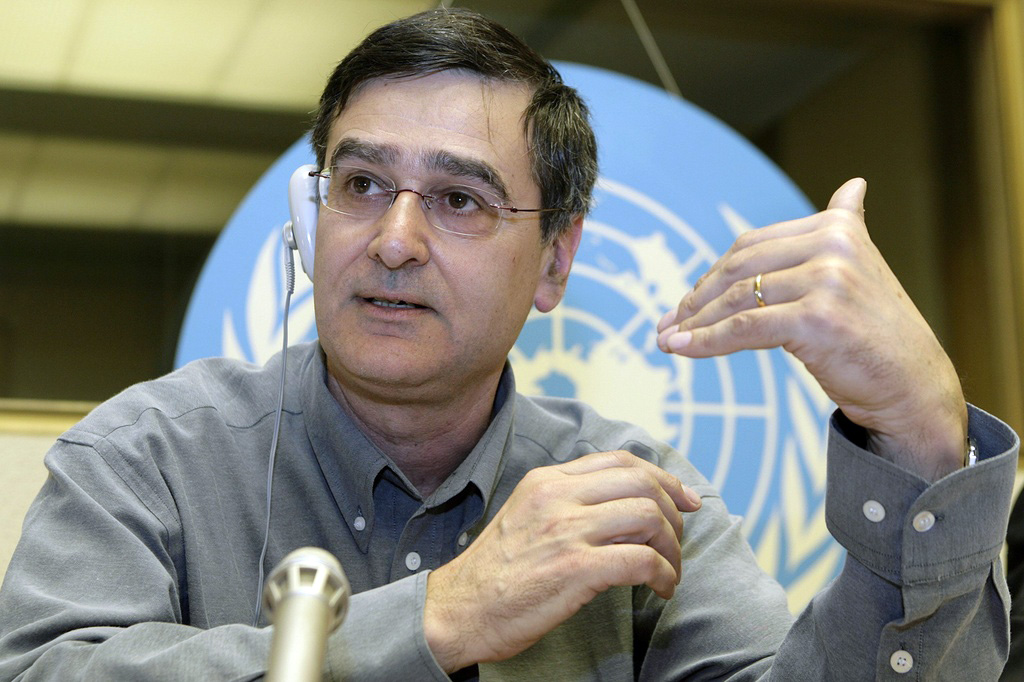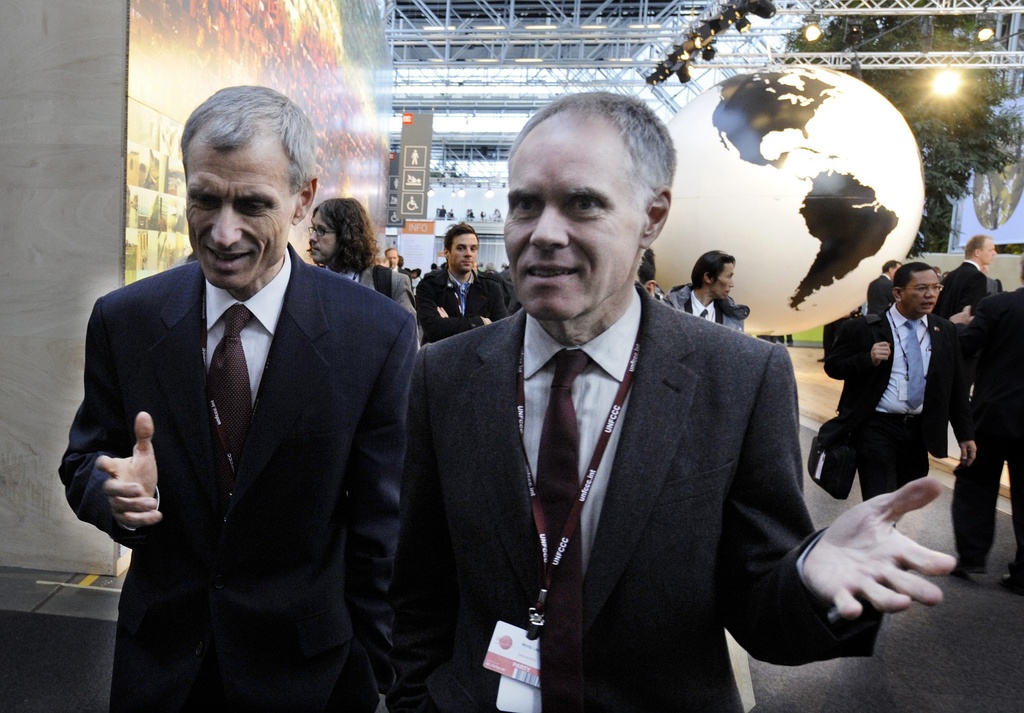Climate scientists get hot under the collar

An international group of national science bodies is to review the United Nations climate body in a bid to restore confidence in the beleaguered institution.
The InterAcademy Council (IAC), a Netherlands-based group of 15 national academies of science, will examine the work of the UN Intergovernmental Panel on Climate Change (IPCC), UN Secretary-General Ban Ki-moon announced earlier this week.
The IPCC acknowledged in January that several of its key warnings in a 3,000-page report published in 2007 were exaggerated.
The body’s defenders insist its problem is one of public relations, that its methodologies are fine and that the climate change science is sound.
Andreas Fischlin, head of Zurich University’s terrestrial systems ecology group and coordinating lead author of one of the chapters in the 2007 report, says criticism of the IPCC is “completely out of proportion”.
But he also has little confidence in the review proposed by the IPCC and says the body could have avoided much of the mess had it stuck to its own rules.
“I therefore rather emphasize measures to improve the current assessment procedures, such that the application of the existing IPCC rules is strengthened and more likely to be applied rigorously throughout,” Fischlin told swissinfo.ch by email.
Ban said “there were a very small number of errors” in the report, which cited more than 10,000 scientific papers and was the basis for the Nobel Prize which the IPCC shared the same year with Al Gore, the former US vice-president.
“Let me be clear. The threat posed by climate change is real,” Ban told reporters alongside panel chairman Rajendra Pachauri. “Nothing that has been alleged or revealed in the media recently alters the fundamental scientific consensus on climate change.”
India and China
Notwithstanding Ban’s confidence, the errors, which included an unsubstantiated projection of Himalayan glaciers melting by 2035 and a slip-up in rudimentary Dutch geography, undermined trust in the institution and exposed dissenting voices among global policymakers – and the public – over the soundness of climate science.
India’s environment and forests minister, Jairam Ramesh, recently told the Wall Street journal he was “a climate agnostic” and Xie Zhenhua, China’s top climate negotiator, has said “there are still two different viewpoints in the scientific field” on the subject of man-made global warming.
A survey conducted in the United States released last month found that only 35 per cent of people there believe man-made global warming is real.
The IPCC defends the report and its reputation. “We believe the conclusions of that report are really beyond any reasonable doubt,” said Pachauri, an engineer by training, who has been resisting calls from critics for his resignation despite coming under sustained attack.
Robbert Dijkgraaf, a mathematical physicist and co-chair of the IAC, said the review would be entirely independent of the UN but would be funded by it. The panel will present its report by the end of August.
“We enter this process with no preconceived conclusions,” Dijkgraaf said but noted the while the panel would review the UN’s practices, it “will definitely not go over all the data, the vast amount of data in climate science”.
Following the rules
The IAC panel will be formed in the next few weeks and will try to answer questions about how the IPCC should deal with dissenting opinions within climate science, a field that includes a variety of disciplines.
The goal is to put in place quality control procedures for the next report, scheduled for 2014.
The IPCC has come under blistering criticism even from some of those who believe that it has “admirable objectives” and is worth sustaining.
One such is US climate scientist Roger Pielke Jr., who, in a scathing indictment of the UN body published in Britain’s Guardian newspaper last week, accused it of gross errors, cover-ups and “wrongheaded behaviour”.
Pielke also says the body also engages in policy advocacy, which is specifically outside its mandate.
In fairness, a month earlier, the paper published an opinion piece by a climate campaigner at Greenpeace, who defended the “gold-standard scientific reporting of the IPCC” from “a motley assortment of cranks, ideologues and special interest voices” in the US.
The New Scientist says it was too easy for some numbers “to find their way into public presentations of IPCC reports without sufficiently rigorous assessment”. The journal Nature says the problem is “only superficially about the science”.
Proponents of man-made global warming, who long dominated the debate on climate science, are now “scared shitless” about deniers gaining the upper hand, Nature quotes Stanford University ecologist Paul Ehrlich in a March 11 editorial. It recommends PR training for scientists.
In Zurich, Andreas Fischlin is exasperated with the media, arguing they consistently get the facts wrong. “The press has done a lousy job,” he says in reference to the way publications like Nature and the prestigious Neue Zürcher Zeitung have covered the IPCC’s foibles. “It’s out of touch with reality.”
Justin Häne, swissinfo.ch and agencies
“Scientists should leave the political mudslinging to the professionals, and instead work on shoring up their research practices, and their communication of scientific information to all audiences.”
– Andrew Freedman, Washington Post Capital Weather Gang blog
“…the controversy has contributed to a fundamental shift in efforts to stop global warming, forcing environmentalists to scale down long-held ambitions and try to win back an increasingly skeptical American public.”
– Brian Winter, USA Today
“My frustrating experience with the IPCC suggests that it desperately needs a mechanism for resolving allegations of error in its work. Its current ad hoc manner of response encourages the panel to politick by press release rather than undertake a careful evaluation of claims.”
– Roger Pielke Jr., The Guardian
“In the last few weeks we have witnessed that effective campaign gain momentum and turn into a sort of global asymmetrical warfare, with criticism of the UN’s Intergovernmental Panel on Climate Change….”
– Joss Garman, The Guardian
“Those who wish to believe the climate crisis is not the result of human activity herald as heroes scientists who disagree with the consensus view, while others deride them as corrupt.”
– Elizabeth May, National Post (Canada)
“…the IPCC leadership and its supporters need to extremely careful to avoid being reflexively defensive.”
– Michael A. Levi, interviewed by the Council on Foreign Relations
“The current process is not only biased but slow. To provide honest and timely answers to such questions, a type of Wikipedia-IPCC is needed.
– John R. Christy, interviewed by the Council on Foreign Relations

In compliance with the JTI standards
More: SWI swissinfo.ch certified by the Journalism Trust Initiative












You can find an overview of ongoing debates with our journalists here . Please join us!
If you want to start a conversation about a topic raised in this article or want to report factual errors, email us at english@swissinfo.ch.